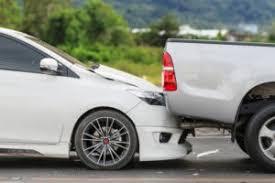Brake-Checking Accidents in Florida: What You Need to Know
Aggressive drivers are a daily danger on Florida roads—from local streets to major highways. When a driver loses their temper or acts recklessly, they can put everyone around them at risk. One of the most dangerous forms of aggressive driving is brake checking, a sudden and unnecessary stop intended to intimidate or provoke another driver.
Brake checking often causes rear-end collisions involving multiple vehicles, leading to painful injuries, expensive repairs, and major frustrations. If another driver’s reckless behavior caused your crash, you deserve to hold them accountable.
What Is Brake Checking?
Brake checking happens when the driver in front slams on the brakes without warning, usually out of anger or as an act of intimidation. This is more than rude—it is reckless behavior that can easily cause a serious or even fatal crash.
Drivers may brake check because they believe someone is following too closely, because they are irritated, or simply due to road rage. Regardless of the reason, brake checking endangers everyone on the road—including the person doing it.
Is Brake Checking Illegal in Florida?
Although Florida does not have a statute labeled specifically “brake checking,” the behavior clearly falls under the state’s reckless driving laws.
Under Florida law, a driver is guilty of reckless driving any time they operate a vehicle with willful or wanton disregard for the safety of others. Brake checking fits this definition. Law enforcement officers may issue citations—or even make arrests—when a driver engages in road-rage behaviors like this.
Proving a Brake-Checking Accident
Proving brake checking can be challenging because the at-fault driver will almost always deny it. That is one reason these cases quickly become complex and contentious.
To recover compensation, you must show:
-
Duty of Care – Every driver must operate their vehicle safely.
-
Breach of Duty – A sudden, intentional brake check is a clear breach.
-
Damages – You must have injuries or property damage.
-
Causation – Your injuries must be linked to the brake-checking behavior.
Helpful evidence may include:
-
Dashcam footage
-
Photos or videos from the scene
-
Witness statements
-
Police reports
-
Event data recorder (EDR) information
-
Vehicle damage patterns
An experienced Florida car accident lawyer can gather and preserve the evidence you need to support your claim.
Rear-End Collisions and Liability After Brake Checking
Florida law often presumes the rear driver is responsible for a rear-end crash. However, that presumption can be overcome when the driver in front causes the collision through reckless actions—such as intentionally slamming on the brakes.
Brake checking may also trigger multi-vehicle pileups. When this happens, multiple parties and insurance companies can become involved, making your claim even more complicated. A lawyer can determine who is responsible and pursue the compensation you deserve.
Compensation Available in a Florida Brake-Checking Case
The value of your claim depends on your injuries, the severity of the crash, and the insurance policies involved. You may be eligible for compensation for:
-
Medical treatment and future care
-
Lost income and diminished earning ability
-
Vehicle repairs or total loss
-
Rental car costs
-
Pain and suffering
-
Emotional distress
Your attorney will calculate your full damages and negotiate for the maximum recovery available.
How Insurance Companies Handle Brake-Checking Claims
Insurers often try to pin blame on the rear driver—even when aggressive driving caused the crash. They may:
-
Deny the claim
-
Downplay your injuries
-
Claim you were following too closely
-
Offer a low settlement
This is why speaking to the insurance company before consulting an attorney can harm your case. A lawyer can protect your rights, manage communications, and demand the fair compensation you’re owed.
What to Do After a Brake-Checking Accident
1. Get Medical Care Immediately
Rear-end crashes can cause hidden injuries, including whiplash, back injuries, concussions, and airbag-related trauma. Prompt treatment protects your health and helps support your legal claim.
2. Gather Evidence
Collect anything that helps show what happened:
-
Photos and video
-
Witness names
-
Dashcam recordings
-
Police report information
Your attorney can handle deeper investigation once they take your case.
3. Contact a Florida Car Accident Lawyer Right Away
Brake-checking cases are difficult, and insurance companies fight them aggressively. An attorney can:
-
Investigate the crash
-
Preserve key evidence
-
Identify all liable parties
-
Deal with the insurance companies
-
Pursue a settlement or file a lawsuit if necessary
Most personal injury law firms—including ours—offer free consultations so you can understand your options without risk.
Injured in a Brake-Checking Accident? We’re Here to Help.
A reckless driver’s split-second decision can leave you dealing with painful injuries, mounting medical bills, and ongoing stress. You don’t have to face this alone.
The Applebaum Accident Group fights for Florida accident victims injured by aggressive and irresponsible drivers. We help you understand your rights, build a strong case, and pursue the compensation you need to move forward.



